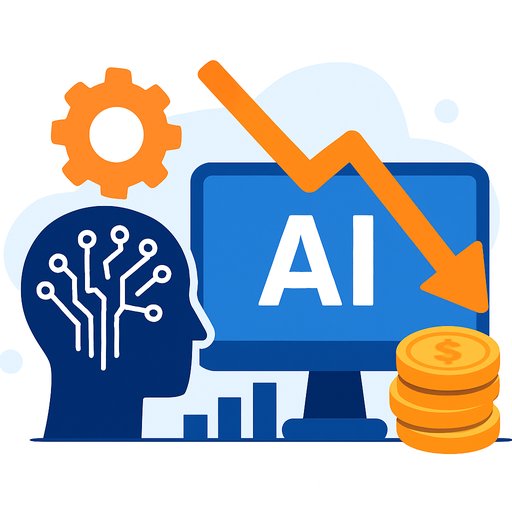What AI Won't Replace in Wealth Management - and Where Leaders Should Double Down
AI is reshaping wealth management. Still, the core of this business is human. Clients hire judgment, presence, and trust - not just numbers on a screen. That won't change.
Here's what veteran advisors say remains firmly human, and how management can align teams and systems for the next chapter.
Empathy and Generational Trust
"AI can surface data, but it can't look a widow in the eye after her spouse passes and reassure her she's going to be okay. That emotional connection is timeless and priceless," said Jason Hanavan, president & CFO of VestGen Wealth Partners.
Advisors build trust across decades and generations. Algorithms can't replicate that. They can inform the conversation; they can't be the conversation.
Entrepreneurial Drive
"This industry was built by entrepreneurs. Advisors are business owners serving their communities. That spirit is alive in the next generation, too. At VestGen, we see it every day as we pair retiring advisors with young, tech-savvy successors who carry that same spark," Hanavan said.
Great firms protect this spirit. Process and automation should amplify initiative - not suffocate it.
Advisor as Client Quarterback
"High-net-worth clients with complex lives rely on their advisor as a central point of contact. They want someone to coordinate moving parts, summarize information, and let them delegate so they can focus on what they enjoy most in life," said David McIntosh, wealth manager with Coldstream Wealth Management.
AJ Sohn, private wealth advisor with BridgePort Financial Solutions, adds: "Advisors will still need to act as the quarterback for the client so they can make changes as the conditions on the field evolve. The humanity of these areas can't be understated - this isn't just about maximizing the number on the page, it's about ensuring someone can live the life they want and that takes a human touch and socially intelligent coordination."
Skip the Hype: AI Complements, It Doesn't Replace
Hanavan sees younger advisors using automations for routine tasks and client service at scale. "This openness and adaptability free our advisors to spend more time on empathy, strategy, and legacy conversations. Advisors who lean into AI will see their value multiply, not diminish."
McIntosh is clear on limits: AI can help DIY investors or simple cases, but complexity requires judgment. "We already see clients sending AI-generated responses to us - but they still need help deciding the right path forward. Without the right prompts or questions, AI can easily push someone away from their actual goals."
And on markets: "Some claim AI will predict global markets or eliminate portfolio risk. While tempting, those promises rarely deliver - especially during crises when truly unpredictable events occur," McIntosh said.
Where AI Should Focus Next
Back office automation. "AI could play a much larger role in conquering the back-end administrative work that clients don't often see," said McIntosh. Think instant meeting briefs (last discussion, milestones, upcoming checkpoints) and automatic tasks tied to life events - child approaching college, or a client turning 50 and qualifying for higher 401(k) contribution limits. For reference on contribution rules, see the IRS page on 401(k) limits: IRS 401(k) contribution limits.
Behavioral insights. "Understanding how clients respond to market corrections, bonuses, or their kids growing up can be just as important as portfolio data," McIntosh said. Tools should help advisors track patterns, preferences, and trade-offs - not just balances. For a primer on investor biases, see FINRA's overview: Behavioral Biases.
Action Plan for Management Teams
- Codify empathy. Create life-event protocols (loss of a spouse, business sale, inheritance) with scripts, checklists, and referral partners. Train teams to slow down, listen, and respond with presence.
- Define the quarterback role. Map who coordinates tax, legal, insurance, banking, and investment tasks. Use clear SLAs and a single owner for each client objective.
- Stand up an AI-enabled back office. Auto-generate pre-meeting briefs, draft follow-ups, and CRM tasks tied to dates and milestones (age 50 catch-up limits, RSU vesting, FAFSA timelines).
- Guardrails for AI outputs. Use human review, version histories, and compliance checks. Track where AI helps and where it confuses. Adjust prompts and playbooks based on outcomes.
- Crisis readiness. Maintain a messaging plan for volatility. Stress test plans, revisit cash needs, and keep decision frameworks simple under pressure.
- Measure what clients feel. Track peace-of-mind metrics, referral velocity, response times, and completion rates on planning tasks - not just AUM and returns.
- Succession with momentum. Pair retiring advisors with tech-forward successors early. Share equity paths, joint client meetings, and a 12-24 month handoff plan.
- Data and privacy governance. Set rules for tools, data sources, and storage. Maintain audit trails and client consent for any AI-assisted communication.
If You're Building Your Firm's AI Stack
Start where leverage is highest: prep, follow-up, and reminders. Keep humans in the loop for advice, judgment, and emotion. For curated options that support finance workflows, see this overview: AI tools for finance.
The takeaway is simple: AI will speed the work. Advisors will keep the relationship. Lead your team so the tech does the lifting and your people do the living, listening, and guiding that clients never forget.
Your membership also unlocks:






